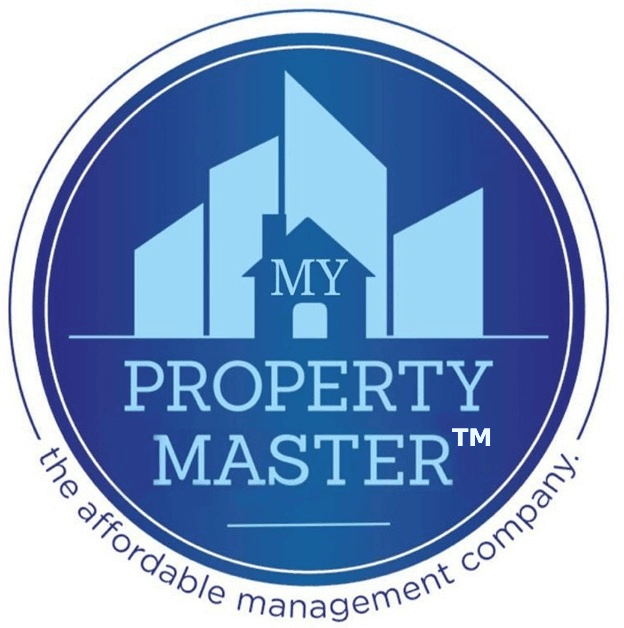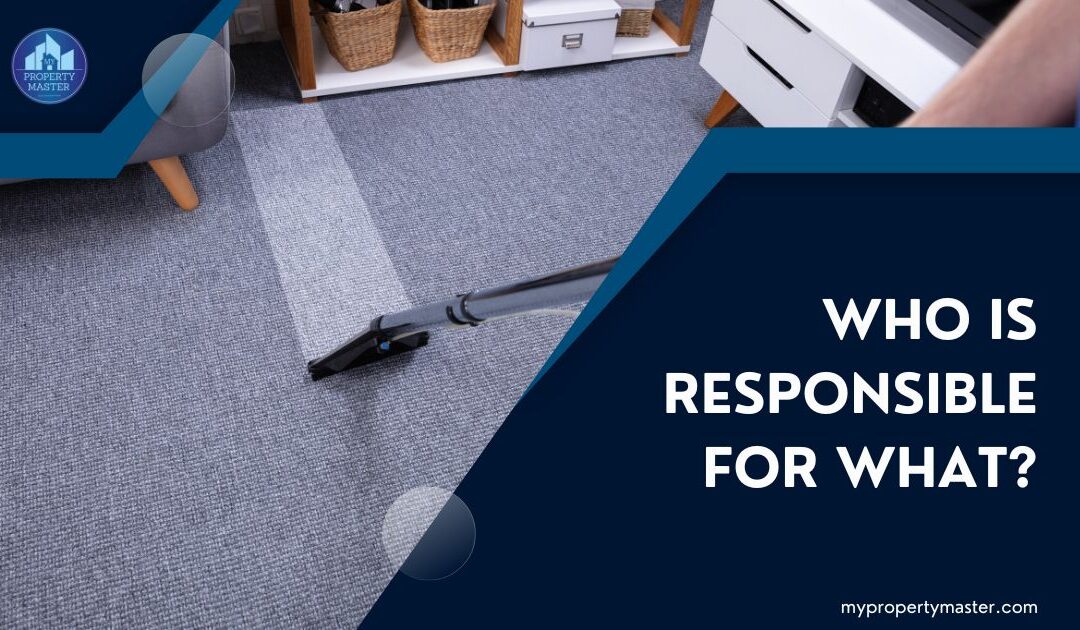Renting a property involves a symbiotic relationship between landlords and tenants, each with their respective roles and responsibilities. However, the division of duties can sometimes be unclear, leading to disputes and misunderstandings.
We are a property management company in Rhode Island that has served for over a decade. From our practical experience working closely with landlords and tenants, we have noticed many confusions and misunderstandings regarding both parties’ responsibilities.
In this post, I will clarify landlord and tenant responsibilities and explain some shared responsibilities. This will clear up any confusion, and you’ll know who is responsible for what.
Let’s get started.
Tenant responsibilities
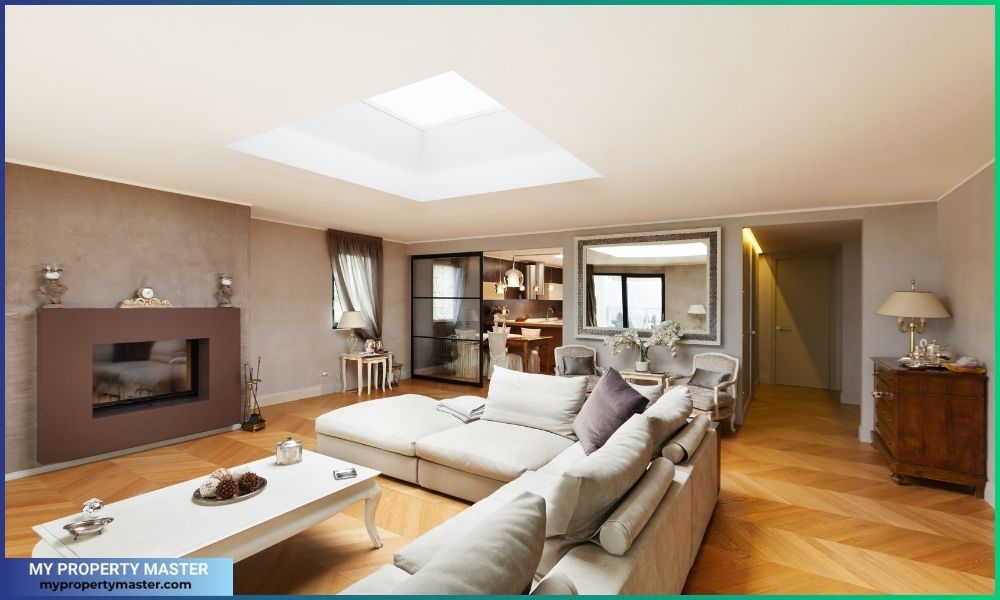
When you rent a property, you get a furnished apartment. You also get the most important things your family needs, such as appliances, furniture, bathroom fittings, running water, hot and cooling features, etc.
Your landlord provides these advantages in exchange for money. However, you also have some responsibilities to keep things in good shape. Your job as a tenant is to use those assets carefully and take care of them as you do for your own assets.
Here, I listed some factors that go under tenant responsibilities.
Minimizing damages
It’s your responsibility to take reasonable precautions to prevent harm or deterioration to the premises during occupancy. This includes avoiding actions or negligence that could lead to damage and promptly reporting any issues to the landlord to prevent further deterioration.
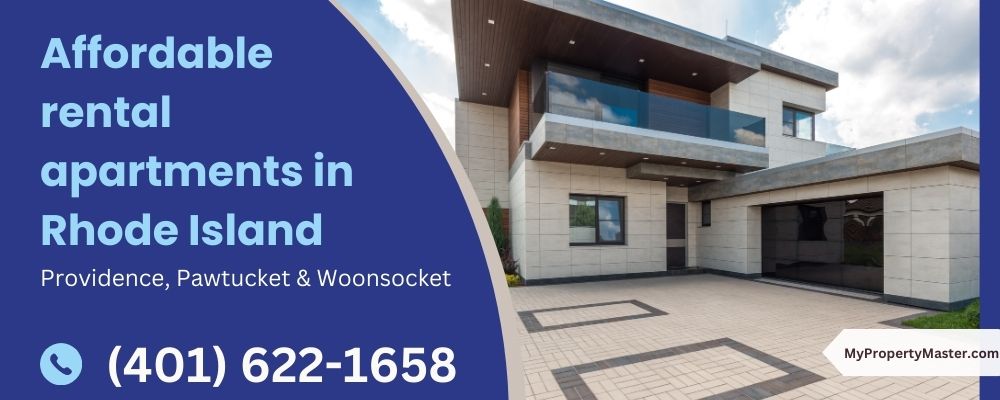
Performing routine maintenance tasks such as cleaning, changing air filters, and promptly addressing minor repairs can prevent issues from escalating and minimize wear and tear on the property.
Minimizing damages is a proactive approach that helps tenants fulfill their responsibility to maintain the property’s condition and preserve its value throughout the tenancy.
Related: Maintenance tips for tenants: How to take care of your rental
Timely rent payment
Timely rent payment is one of the tenants’ primary responsibilities. Failure to pay rent on time may result in late fees, eviction proceedings, or other legal actions by the landlord.
Related: Legal consequences of not paying rent.
Property maintenance
The tenant is responsible for routine upkeep tasks such as regular cleaning, trash disposal, minor repairs, changing light bulbs, replacing air filters, smoke detector maintenance, etc.
Pet waste disposal
As a tenant, it’s important to understand that pet waste disposal is your responsibility.
This entails promptly removing your pets’ waste to maintain cleanliness and safety on the property. For instance, if you have a dog, it’s crucial to scoop up their waste from the yard or common areas and dispose of it properly in designated bins.
Neglecting this responsibility can lead to unpleasant odors and health hazards for you and your neighbors. Remember, being a responsible pet owner includes proper waste disposal to maintain a pleasant living environment for everyone.
Related: The most common landlord-tenancy problems and their solutions
Garbage dumping
You should dispose of household waste in designated bins or areas for collection. Tenants are responsible for adhering to local regulations and guidelines regarding garbage disposal to maintain cleanliness and prevent environmental hazards.
This includes sorting recyclables, bagging trash securely, and placing bins at designated pickup locations on scheduled collection days. Failure to dispose of garbage can result in penalties. It may also lead to pest infestations or unsanitary living conditions on the property.
Read also: Pros and cons of renting from private landlords
Reporting maintenance issues
As a tenant, it’s essential to report maintenance issues promptly. This means informing your landlord or property manager as soon as you notice any problems or repairs needed in the rental property.
By reporting maintenance issues promptly, you help ensure that necessary repairs are addressed on time, preventing further damage and maintaining the property’s condition.
Compliance with lease terms
Violation of lease terms can result in warnings, fines, or eviction proceedings by the landlord.
For instance, if the lease states that tenants are allowed to have one small dog with prior approval from the landlord, compliance would entail obtaining permission before bringing a pet into the rental property. This includes providing necessary documentation, such as vaccination records and pet deposits, and abiding by any additional rules or restrictions related to pet ownership specified in the lease. Failure to comply with the pet policy could result in lease agreement violations.
Landlord responsibilities
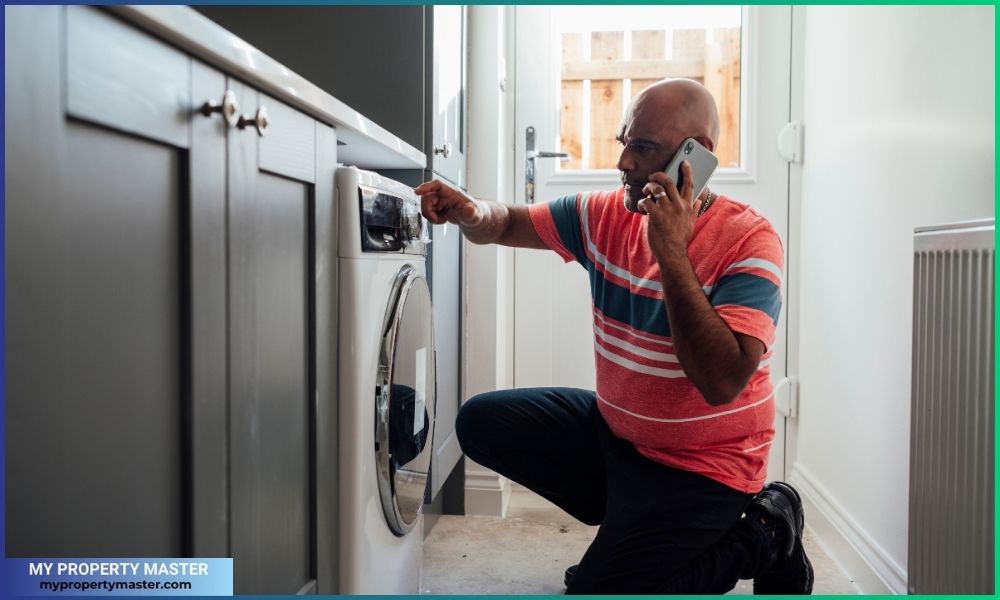
Landlords are the owners of the rental properties. Tenants can live in the properties in exchange for money. This is a win-win for both parties. However, still, landlords have some responsibilities. I listed them below.
Property maintenance and repairs
Maintaining the rental property in good condition, including fixing structural issues, repairing appliances, and addressing any problems with plumbing, heating, or electricity.
Landlords should ensure that the property is safe and habitable for tenants, promptly respond to maintenance requests, and arrange for professional repairs when necessary.
Regular upkeep and timely repairs help create a comfortable living environment and foster a positive relationship between landlords and tenants.
Providing essential services
Landlords must provide essential services such as water, heating, and electricity unless otherwise agreed upon in the lease agreement.
Handling security deposits
Landlords are responsible for handling security deposits by state laws, including collecting, holding, and returning deposits at the end of the tenancy.
Tenants must be eligible for a security deposit return. If tenants cause damage, landlords can adjust the amount from the deposit.
Pest control
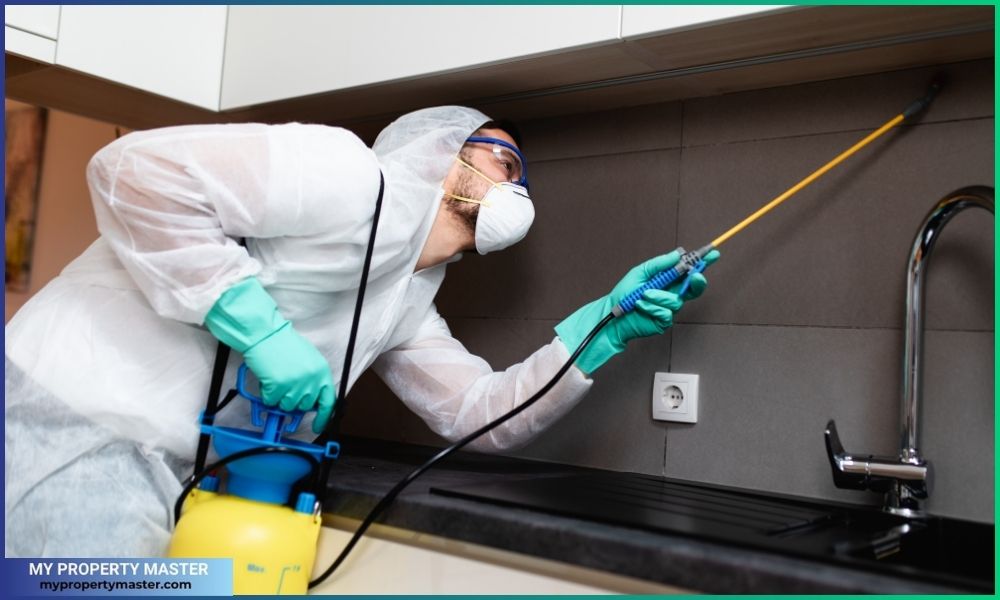
Rental properties should be free from pest infestations upon move-in. Landlords should take measures to control pests throughout the tenancy. This includes promptly addressing pest problems, such as arranging for professional extermination services if necessary and implementing preventative measures.
Tenants should report any signs of pests so landlords can act accordingly.
If a tenant fails to dispose of food waste or maintain cleanliness, resulting in a pest infestation, the landlord may not be solely responsible for addressing the issue. However, landlords should still ensure that the property meets health and safety standards.
Heating and cooling
Landlords are required to turn on the heat in the winter months and provide cooling features in rental properties, especially in hot weather.
Related: When do landlords have to turn the heat on?
Safety protocols
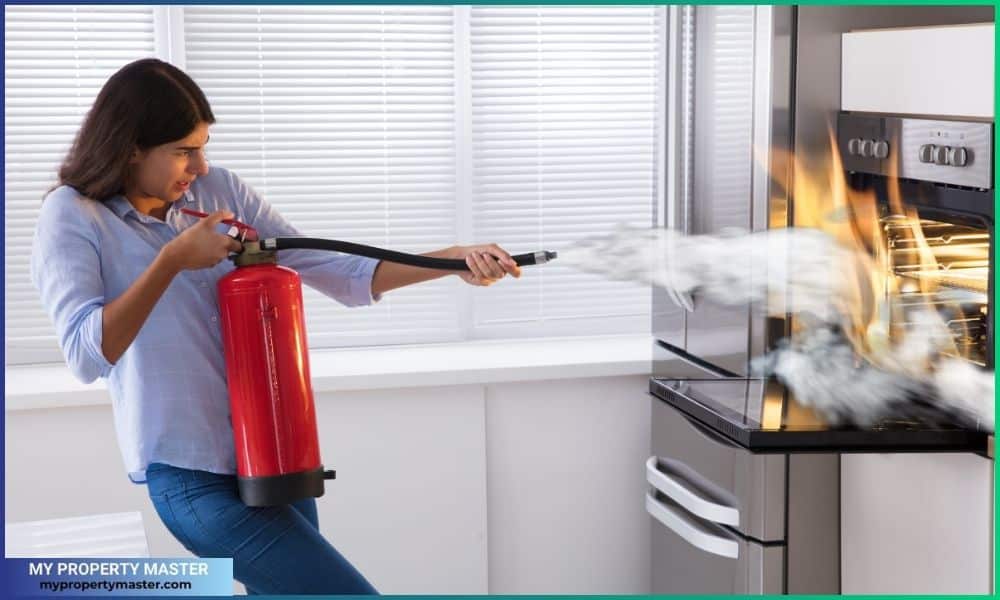
Landlords must provide safety protocols and ensure the rental property meets specific safety standards to protect tenants. These safety protocols may include:
- Smoke and carbon monoxide detectors
- Secure locks
- Fire safety measures
- Building codes compliance
Landlords are legally obligated to prioritize tenant safety by providing essential safety protocols.
Related: Does a landlord have to provide fire extinguishers?
Common area management (CAM)
Landlords have several responsibilities in managing the common areas of a rental property, which are shared spaces accessible to multiple tenants. Some of these responsibilities are as follows:
- Regularly clean and maintain hallways and stairwells to keep them free from debris and hazards.
- Repairing any damage to common area fixtures or amenities, such as broken handrails or malfunctioning lighting.
- Ensuring that common area entrances are well-lit and secure, with functioning locks and security features to prevent unauthorized access.
- Providing regular landscaping and maintenance for outdoor common areas, including mowing lawns, trimming hedges, and clearing snow from walkways.
Related: What is the CAM fee, and how is it calculated?
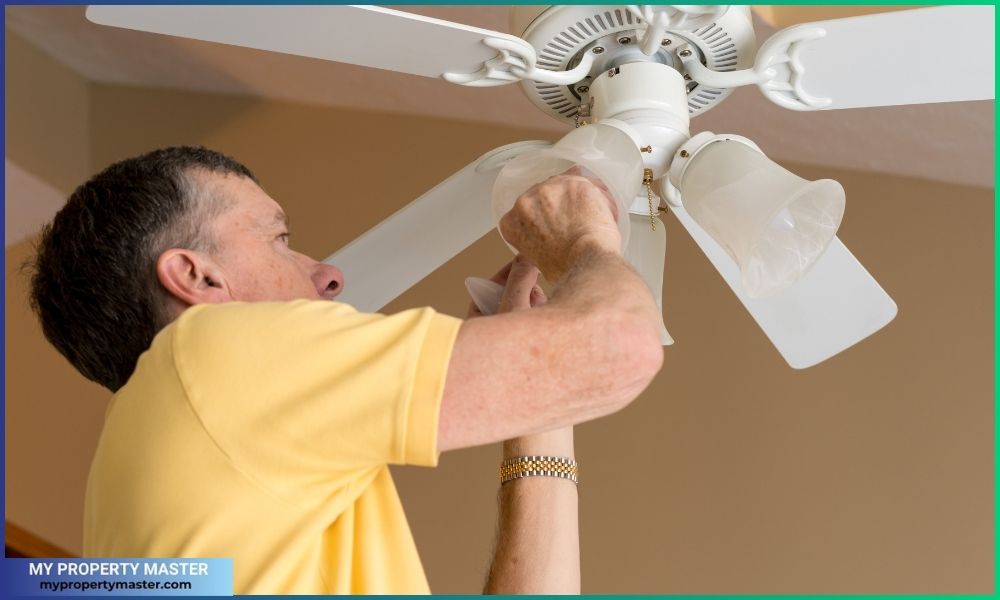
In addition to the above discussion, some responsibilities are shared between tenants and landlords. This means both parties are responsible for specific duties.
In some cases, these shared responsibilities could be outlined in the lease, and sometimes, they depend on verbal instructions and common sense.
Shared responsibilities between tenants and landlords typically include:
Maintenance of the rental property
While landlords are responsible for ensuring the structural integrity and safety of the property, tenants are often responsible for day-to-day maintenance tasks such as keeping the rental unit clean, replacing light bulbs, and reporting any maintenance issues promptly.
Compliance with lease terms
Both tenants and landlords are expected to abide by the terms and conditions outlined in the lease agreement. This includes paying rent on time, respecting property rules and regulations, and fulfilling their respective obligations as outlined in the lease.
Communication
Addressing concerns, reporting maintenance issues, and resolving disputes are essential. Both parties should maintain open lines of communication and respond promptly to inquiries or requests.
Respect for the property
Tenants and landlords are responsible for respecting and caring for rental property. This includes avoiding damage, maintaining cleanliness, and treating the property with care.
Compliance with legal requirements
Both tenants and landlords must comply with all applicable laws and regulations governing rental properties, including local housing codes, fair housing laws, and tenant rights statutes.
By recognizing and fulfilling these shared responsibilities, tenants and landlords can work together to maintain a positive and mutually beneficial landlord-tenant relationship and ensure the successful management of the rental property.
Conclusion
By understanding the distinct obligations of landlords and tenants, both parties can fulfill their duties and contribute to a positive renting experience.
Effective communication, adherence to legal requirements, and a commitment to resolving disputes are essential elements in fostering a healthy landlord-tenant relationship.
